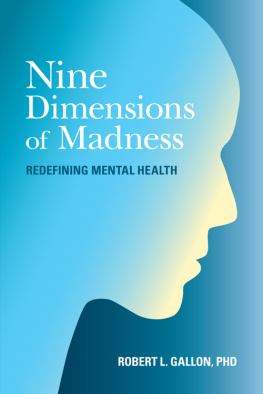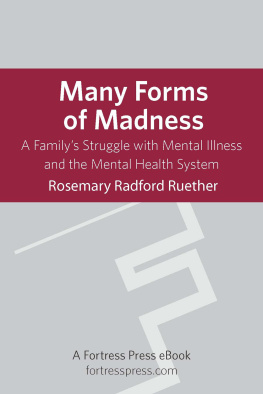First published 2017
by Routledge
2 Park Square, Milton Park, Abingdon, Oxon OX14 4RN
and by Routledge
711 Third Avenue, New York, NY 10017
Routledge is an imprint of the Taylor & Francis Group, an informa business
2017 Iwao Akita
The right of Iwao Akita to be identified as author of this work has been asserted by him in accordance with sections 77 and 78 of the Copyright, Designs and Patents Act 1988.
All rights reserved. No part of this book may be reprinted or reproduced or utilised in any form or by any electronic, mechanical, or other means, now known or hereafter invented, including photocopying and recording, or in any information storage or retrieval system, without permission in writing from the publishers.
Trademark notice: Product or corporate names may be trademarks or registered trademarks, and are used only for identification and explanation without intent to infringe.
British Library Cataloguing-in-Publication Data
A catalogue record for this book is available from the British Library
Library of Congress Cataloging-in-Publication Data
Names: Akita, Iwao, 1957 author.
Title: A Japanese jungian perspective on mental health and culture :
wandering madness / Iwao Akita ; translated by Waka Shibata and
Kittredge Stephenson.
Description: Milton Park, Abingdon, Oxon ; New York, NY : Routledge,
2017.
Identifiers: LCCN 2016040778 | ISBN 9781138805699 (hardcover) |
ISBN 9781315752105 (electronic)
Subjects: LCSH: JapaneseMental health. | Mental illnessJapan. |
Cultural psychiatry.
Classification: LCC RC339.J3 A35 2017 | DDC 616.8900952dc23
LC record available at https://lccn.loc.gov/2016040778
ISBN: 978-1-138-80569-9 (hbk)
ISBN: 978-1-315-75210-5 (ebk)
Typeset in Sabon
by Apex CoVantage, LLC

Research in Analytical Psychology and Jungian Studies
Series Advisor: Andrew Samuels
Professor of Analytical Psychology, Essex University, UK
The Research in Analytical Psychology and Jungian Studies series features research-focused volumes involving qualitative and quantitative research, historical/archival research, theoretical developments, heuristic research, grounded theory, narrative approaches, collaborative research, practitionerled research, and self-study. The series also includes focused works by clinical practitioners, and provides new research informed explorations of the work of C. G Jung that will appeal to researchers, academics, and scholars alike.
Books in this series:
Jung and Levinas
An Ethics of Mediation
Frances Gray
Symptom, Symbol, and the Other of Language
A Jungian Interpretation of the Linguistic Turn
Bret Alderman
Post-Jungian Psychology and the Short Stories of Ray Bradbury and Kurt Vonnegut
Golden Apples of the Monkey House
Steve Gronert Ellerhoff
Eros and Economy
Jung, Deleuze, Sexual Difference
Barbara Jenkins
Towards a Jungian Theory of the Ego
Karen Evers-Fahey
A Japanese Jungian Perspective on Mental Health and Culture
Wandering Madness
Iwao Akita
Translated by Waka Shibata and Kittredge Stephenson
Its a pleasure to write a foreword for such an important work. Dr. Iwao Akita has a similar history as I do, being a psychiatrist and a Jungian analyst. His cases are holistic, and combine his interest in psychiatric medicine as well as analytical psychology. I endorse his approach in using the bio-psychosocial model and his addition of a spiritual dimension. Dr. Akitas approach makes sure that finding meaning in madness is an essential aspect of treating our patients. Im always humbled by William James philosophy and understanding of how religion and illness intersect. Perhaps Dr. Akita is following the lead of this pioneer by understanding the import of how religion, and its influence on culture, shape our care of patients.
David H. Rosen, M.D.
Eugene, Oregon, U.S.A.
Contents
Guide
In this book, I first proposed the concept of psycheology. Then, I discussed the cause of existence and posed questions regarding madness by using the concepts of personhood disorders and psychopathy. I also explained that the nature of madness involved disordered personhood as a result of pursuing godhood.
You may think that I, as a clinician, should have presented clinical cases or my clients dreams. I rarely brought these up, but used many stories instead. I would like to express my deepest gratitude for these stories. They have always been an intimate part of my clinical work, and my life itself.
I also mentioned the terror of being locked up, with a focus on existence and madness. As discussed, the Minotaur was not locked up in the labyrinth because he was a monster. Anyone becomes a Minotaur if he or she is kept locked up.
The human psyche is connected to everything. That is, the scope of psycheology is such that it requires the study of everything, which is obviously impossible to do alone. Conversely, the good news is that everything can contribute to psycheology . Therefore, I plan to establish my own psycheology by studying what has been important to me, since providing a full foundation for it is beyond my reach. Nothing would make me happier than if my modest attempt contributed to those in the helping professions, as well as to those striving to live authentically.
It is too late to mention, but I used a term personhood disorder in this book. Personhood disorder ( jinkaku-shgai ) was already in use as a mental health term when I first became a psychiatrist in 1985, which continued up until a few years ago when the term was officially replaced by personality disorder (personality- shgai ). Many mental health terms (including psychopathy, moral insanity, and degeneration theory) disappeared after being used for several decades. Personhood disorder has yet to die out completely, but it is disappearing. I ventured to use this term here because, in my several decades of clinical experience, I have met a number of clients whose suffering was aptly depicted by this term. I hope this book will be of some help to those whose suffering was, or still is, in keeping with disordered personhood.
Japanese edition
I want to express my warmest thanks to Mr. Toshiyuki Tsuda and Ms. Akemi Watanabe from Sougensha for their support and guidance. Mr. Tsuda was the one who set up this project, and both believed in my potential and worked patiently with me over the course of the books development. This book would not exist without Mr. Tsuda. He was always encouraging and supportive. He provided me with freedom of thought and expression, which may have seemed rather eccentric at times. He did not hesitate in allowing me to develop my theory. I lack words to describe my appreciation.
I also want to touch upon the cover art.
When I was in Switzerland, I had a dream in which I am looking at a famous Japanese writer, who is writing a novel in a stylish atelier. I had no clue why I had such a dream at the time. Sixteen years later, on November 15, 2011, I visited Mr. Tsutomu Nishiokas studio to discuss the cover art with my editors, Mr. Toshiyuki Tsuda and Ms. Yumiko Miyazaki. (I was meeting Yumiko for the first time, but she contributed greatly to the publication of this book behind the scenes.) As we stepped in, I was confronted with the scene from the dream. That was it! Tsutomu Nishioka and I had several subsequent exchanges through Toshiyuki Tsuda. As someone who appreciates deep questions about the world, I learned a great deal in the course of my communications with Nishioka. When talented individuals get together and work collaboratively, a masterpiece can be produced. Perhaps I should not praise my own book so highly, but when I received the proof for the cover, I felt embraced by the cosmos. I thought, Finally, this is complete.









